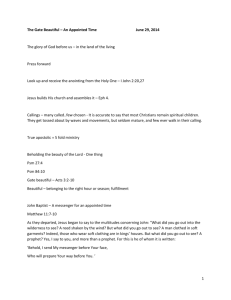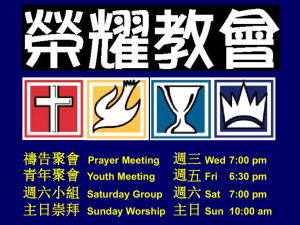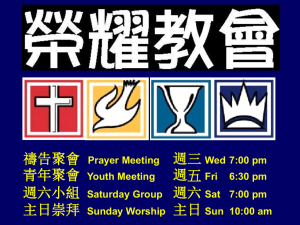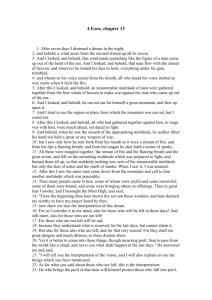Roman Missal Changes Part 12: The Invitation to Communion
advertisement
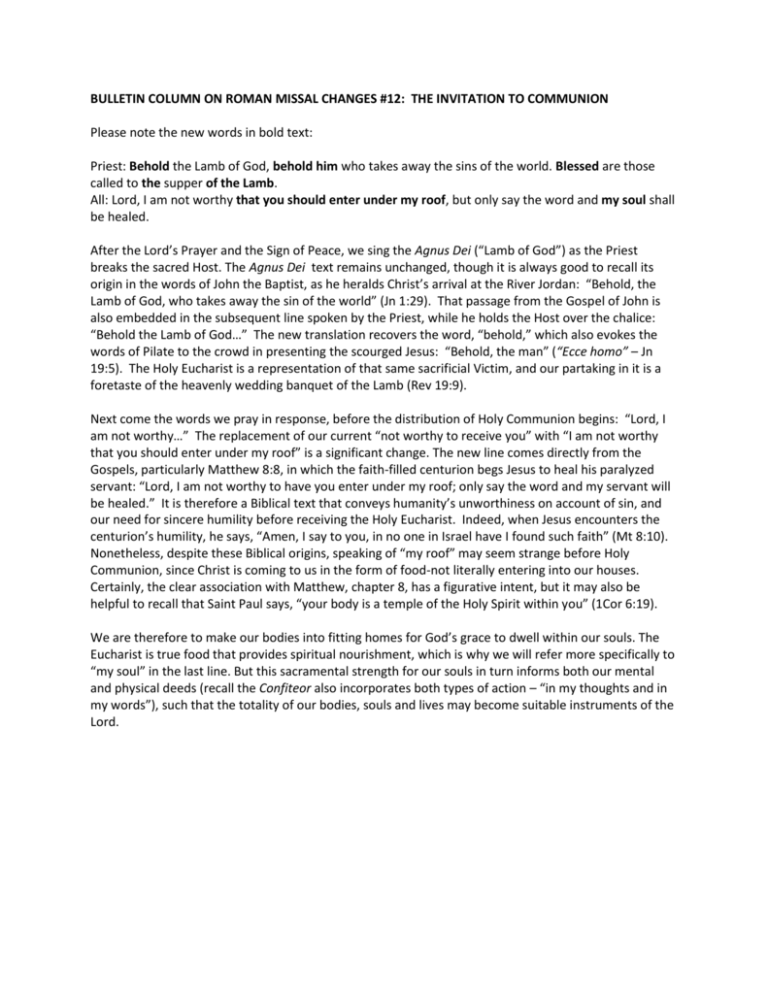
BULLETIN COLUMN ON ROMAN MISSAL CHANGES #12: THE INVITATION TO COMMUNION Please note the new words in bold text: Priest: Behold the Lamb of God, behold him who takes away the sins of the world. Blessed are those called to the supper of the Lamb. All: Lord, I am not worthy that you should enter under my roof, but only say the word and my soul shall be healed. After the Lord’s Prayer and the Sign of Peace, we sing the Agnus Dei (“Lamb of God”) as the Priest breaks the sacred Host. The Agnus Dei text remains unchanged, though it is always good to recall its origin in the words of John the Baptist, as he heralds Christ’s arrival at the River Jordan: “Behold, the Lamb of God, who takes away the sin of the world” (Jn 1:29). That passage from the Gospel of John is also embedded in the subsequent line spoken by the Priest, while he holds the Host over the chalice: “Behold the Lamb of God…” The new translation recovers the word, “behold,” which also evokes the words of Pilate to the crowd in presenting the scourged Jesus: “Behold, the man” (“Ecce homo” – Jn 19:5). The Holy Eucharist is a representation of that same sacrificial Victim, and our partaking in it is a foretaste of the heavenly wedding banquet of the Lamb (Rev 19:9). Next come the words we pray in response, before the distribution of Holy Communion begins: “Lord, I am not worthy…” The replacement of our current “not worthy to receive you” with “I am not worthy that you should enter under my roof” is a significant change. The new line comes directly from the Gospels, particularly Matthew 8:8, in which the faith-filled centurion begs Jesus to heal his paralyzed servant: “Lord, I am not worthy to have you enter under my roof; only say the word and my servant will be healed.” It is therefore a Biblical text that conveys humanity’s unworthiness on account of sin, and our need for sincere humility before receiving the Holy Eucharist. Indeed, when Jesus encounters the centurion’s humility, he says, “Amen, I say to you, in no one in Israel have I found such faith” (Mt 8:10). Nonetheless, despite these Biblical origins, speaking of “my roof” may seem strange before Holy Communion, since Christ is coming to us in the form of food-not literally entering into our houses. Certainly, the clear association with Matthew, chapter 8, has a figurative intent, but it may also be helpful to recall that Saint Paul says, “your body is a temple of the Holy Spirit within you” (1Cor 6:19). We are therefore to make our bodies into fitting homes for God’s grace to dwell within our souls. The Eucharist is true food that provides spiritual nourishment, which is why we will refer more specifically to “my soul” in the last line. But this sacramental strength for our souls in turn informs both our mental and physical deeds (recall the Confiteor also incorporates both types of action – “in my thoughts and in my words”), such that the totality of our bodies, souls and lives may become suitable instruments of the Lord.


